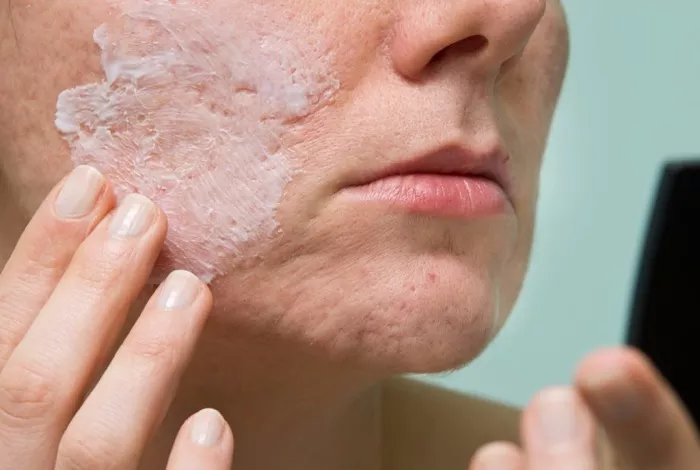Bipolar disorder is a complex mental health condition characterized by extreme shifts in mood, energy, activity levels, and the ability to carry out day-to-day tasks. One of the variations of bipolar disorder is Bipolar 1, which can manifest in a variety of ways, including a more severe form known as rapid cycling. Rapid cycling in bipolar 1 refers to the occurrence of frequent mood episodes within a short period of time. This form of bipolar disorder can have significant implications for the patient’s quality of life, relationships, and overall mental health. Understanding rapid cycling bipolar 1 is important for both those affected by the disorder and healthcare professionals who work with them. In this article, we will explore what rapid cycling bipolar 1 is, its symptoms, diagnosis, and treatment options.
Understanding Bipolar 1 Disorder
Before diving into rapid cycling, it’s essential to understand bipolar 1 disorder in general. Bipolar 1 is characterized by at least one manic episode, which is typically followed by depressive episodes. The manic episodes can be severe and may lead to significant impairment in one’s social, occupational, or other important areas of functioning. Unlike bipolar 2 disorder, where hypomanic episodes are common, individuals with bipolar 1 experience full-blown mania.
The mood episodes in bipolar 1 disorder alternate between periods of elevated mood (mania) and low mood (depression). These shifts in mood are often extreme, with mania marked by an elevated or irritable mood, increased energy, impulsive behavior, and reduced need for sleep, while depressive episodes are characterized by feelings of sadness, hopelessness, and a lack of energy.
What Is Rapid Cycling?
Rapid cycling is a term used to describe the pattern of mood episodes in bipolar disorder when an individual experiences four or more episodes of mania, hypomania, or depression within a 12-month period. In bipolar 1, this rapid cycling may involve the switching between full manic episodes and depressive episodes, often at a much faster pace than is typical for bipolar disorder.
Rapid cycling is not a separate diagnosis but rather a descriptor of how frequently mood episodes occur. It affects a significant proportion of people with bipolar disorder, though the exact percentage varies depending on different studies and criteria. For individuals with rapid cycling bipolar 1, mood episodes can become more unpredictable, which may make the condition harder to manage and treat.
Symptoms of Rapid Cycling Bipolar 1
The symptoms of rapid cycling bipolar 1 are similar to those of the general bipolar 1 disorder, but what distinguishes rapid cycling is the frequency of the mood episodes. Below are the symptoms of the two primary mood states experienced in bipolar 1:
Manic Episodes
Elevated or Irritable Mood: During manic episodes, individuals may feel excessively happy, euphoric, or easily irritated.
Increased Energy: Mania is often associated with an increase in energy and activity, which may lead to impulsivity and poor judgment.
Decreased Need for Sleep: Individuals may feel rested after just a few hours of sleep or may go without sleep for long periods without feeling tired.
Impulsive Behavior: This may include reckless spending, unsafe sexual activity, or impulsive decision-making.
Racing Thoughts and Speech: Thoughts may come rapidly and may be difficult to control, making speech fast and disorganized.
Grandiosity: A feeling of inflated self-importance, where the individual may believe they have extraordinary abilities, power, or influence.
Depressive Episodes
Persistent Sadness: Individuals experience feelings of deep sadness, hopelessness, or emptiness.
Loss of Interest: Activities that once brought pleasure no longer seem enjoyable, leading to social withdrawal.
Fatigue: A lack of energy, even after a full night’s sleep, is common during depressive episodes.
Changes in Appetite: There may be significant weight loss or gain, often due to changes in eating habits.
Difficulty Concentrating: Depressed individuals may struggle with focus, memory, or decision-making.
Thoughts of Death or Suicide: Severe depressive episodes can lead to thoughts of self-harm or suicide, making professional intervention crucial.
The Role of Rapid Cycling in Bipolar 1
In the case of rapid cycling, the individual may experience manic and depressive episodes in quick succession, sometimes switching between them in a matter of weeks or even days. This rapid shifting can lead to confusion, difficulty maintaining stability, and a more challenging course of the illness. It is also associated with a higher likelihood of hospitalization and other significant impairments.
It’s important to note that rapid cycling is more common in certain populations. For instance, individuals who experience the onset of bipolar disorder at a younger age may be more prone to rapid cycling. Additionally, certain external factors, such as stress or substance abuse, can trigger or exacerbate rapid cycling episodes.
Diagnosis of Rapid Cycling Bipolar 1
The diagnosis of rapid cycling bipolar 1 requires a thorough evaluation by a mental health professional. Diagnosing bipolar 1, particularly rapid cycling, involves a detailed psychiatric history, including a record of the individual’s mood episodes. A diagnosis is typically made using the criteria outlined in the Diagnostic and Statistical Manual of Mental Disorders (DSM-5), which is used by healthcare professionals to diagnose mental health conditions.
For rapid cycling bipolar 1 to be diagnosed, the individual must have experienced four or more distinct mood episodes (mania, hypomania, or depression) within a 12-month period. Additionally, these episodes must be clearly distinguishable from one another, meaning that they cannot overlap or be confused with other episodes. A healthcare provider will often rule out other potential causes, such as substance abuse or medical conditions, to ensure the accuracy of the diagnosis.
Causes and Risk Factors of Rapid Cycling Bipolar 1
The exact cause of bipolar 1 disorder and its rapid cycling form remains unclear. However, there are several factors that may contribute to the development of this condition:
Genetics: Bipolar disorder tends to run in families, suggesting that genetic factors play a role in its development. Having a family history of bipolar disorder or other mood disorders increases the risk of developing bipolar 1.
Neurobiological Factors: Changes in brain structure and function may contribute to mood instability in individuals with bipolar disorder. These changes can affect neurotransmitter systems involved in regulating mood and behavior.
Environmental Stress: Stressful life events, trauma, or major changes (such as a breakup or financial difficulties) can trigger or worsen mood episodes in individuals with bipolar disorder.
Medications: Certain medications, particularly antidepressants, may trigger manic episodes in people with bipolar disorder, potentially contributing to rapid cycling.
Sleep Disruptions: Irregular sleep patterns can exacerbate mood instability, making individuals more susceptible to rapid cycling.
Treatment Options for Rapid Cycling Bipolar 1
Managing rapid cycling bipolar 1 is challenging but not impossible. The goal of treatment is to stabilize mood, prevent the recurrence of mood episodes, and help the individual lead a functional life. Treatment typically involves a combination of medications, psychotherapy, and lifestyle modifications.
Medications
Mood Stabilizers: Medications like lithium are commonly prescribed to manage manic and depressive episodes in bipolar 1. Lithium helps to balance mood and reduce the frequency of episodes, including rapid cycling.
Anticonvulsants: Drugs like valproate and lamotrigine are used as mood stabilizers and can be effective in managing rapid cycling episodes.
Atypical Antipsychotics: Drugs like quetiapine and aripiprazole may be used to manage both manic and depressive symptoms, particularly in patients with rapid cycling.
Antidepressants: These are sometimes used to treat the depressive episodes of bipolar disorder, but they should always be used cautiously and in conjunction with a mood stabilizer to avoid triggering mania.
Benzodiazepines: In some cases, benzodiazepines may be prescribed temporarily to manage acute symptoms of agitation or anxiety during mood episodes.
Psychotherapy
While medications are often central to the treatment of rapid cycling bipolar 1, psychotherapy can also play a vital role. Cognitive-behavioral therapy (CBT) is one of the most commonly used forms of psychotherapy. CBT helps individuals recognize and change patterns of thinking that may contribute to mood instability. Additionally, interpersonal and social rhythm therapy (IPSRT) focuses on stabilizing daily routines and improving interpersonal relationships, which can be particularly helpful for individuals with rapid cycling bipolar disorder.
Lifestyle Modifications
In addition to professional treatment, individuals with rapid cycling bipolar 1 can benefit from lifestyle changes that promote stability and reduce the frequency of mood episodes:
Regular Sleep Patterns: Consistently getting enough sleep is crucial for mood regulation.
Stress Management: Techniques such as meditation, yoga, or mindfulness can help reduce stress, which may trigger mood episodes.
Avoiding Substance Abuse: Alcohol and drug use can destabilize mood and interfere with treatment.
Exercise and Nutrition: Regular physical activity and a balanced diet can have a positive impact on mood and overall well-being.
Prognosis and Living with Rapid Cycling Bipolar 1
Although rapid cycling bipolar 1 can be difficult to manage, with the right treatment, many individuals can lead productive and fulfilling lives. Regular follow-up with mental health professionals, adherence to treatment plans, and the support of loved ones are all key components of managing the condition. It is important to remember that everyone’s experience with bipolar disorder is unique, and treatment plans should be personalized to fit each individual’s needs.
Conclusion
Rapid cycling bipolar 1 is a challenging variation of bipolar disorder marked by frequent shifts between manic and depressive episodes. Understanding the symptoms, causes, and treatment options is crucial for managing the disorder effectively. While the rapid cycling pattern can make the condition more difficult to treat, individuals with the right combination of medications, therapy, and lifestyle changes can work toward stabilizing their mood and living a fulfilling life. By increasing awareness and understanding of this form of bipolar disorder, we can help those affected by it lead better lives.
Related Topics

































